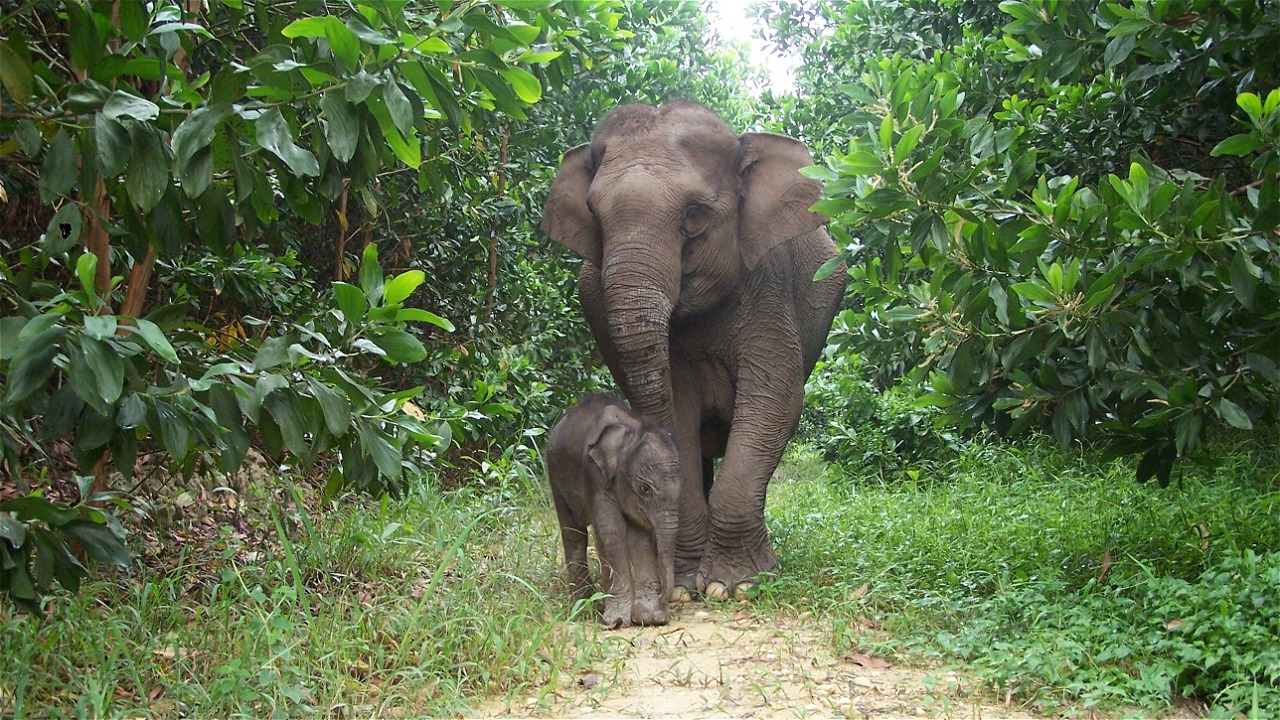MEET THE ELEPHANT FLYING SQUAD, AN ELEPHANT CONFLICT PREVENTION SQUAD
By: Natalia Trita Agnika
Some time ago we got the good news about the birth of Harmoni Rimbo, a Sumatran Elephant in Tesso Nilo National Park. Harmoni Rimbo is the daughter of elephant Ria who is a member of the Elephant Flying Squad.
Elephant Flying Squad or Elephant Patrol Team is a team consisting of handlers/mahouts and trained elephants. The team, introduced by WWF-Indonesia and the Tesso Nilo National Park Center since 2004, is tasked with driving wild elephants that enter community gardens back to their habitat in Tesso Nilo National Park so as to reduce conflict between elephants and humans.
Tesso Nilo is an elephant conservation area because it is considered a relatively good elephant habitat. However, Riau's wild elephant population continues to decline due to large-scale conversion of natural forests. As a result, elephants that once lived on a large scale are now fragmented into smaller groups that can potentially lead to conflict between humans and elephants. Besides harming humans, these conflicts also harm elephants. To reduce elephant disturbance, it is not uncommon for people to use methods that result in the death of elephants.
Based on the records of Syamsuardi and Wishnu Sukmantoro WWF-Indonesia in the "2012 Elephant Flying Squad Study for Mitigating Elephant-Human Conflict in Lubuk Kembang Bunga Village and its surroundings", since the presence of the Elephant Flying Squad 2004 in Lubuk Kembang Bunga Village, it was recorded that the effectiveness of conflict reduction from 2004-2010, could be reduced to 63.8% - 78.7%.
The Elephant Flying Squad team routinely, twice a week, patrols the areas bordering Tesso Nilo National Park. While on patrol, their handlers and elephants will identify signs of wild elephants so that efforts to drive them into the forest can be made earlier.
Patrols with Flying Squad elephants are only carried out during the day. Before patrolling, the team must bring complete equipment and prepare themselves well, especially the physical condition of the handlers and elephants. They must be in good health. For this reason, male Flying Squad elephants that are in the "musth" phase are not allowed to participate in patrols. Similarly, pregnant female elephants are not allowed to participate in wild elephant herding. When they find signs of wild elephants, the team must record them in the table provided and be able to handle them.
Flying Squad elephants in Tesso Nilo National Park have the same life as wild elephants in nature. The training elephants are allowed to live in the forest and are not captive. What distinguishes them from wild elephants, they have a physical exercise schedule and a patrol schedule twice a week in the morning for two hours each patrol.
To maintain their quality of life, the Flying Squad elephants are well cared for by veterinarians. The role of veterinarians in WWF-Tesso Nilo National Park's Elephant Flying Squad is as medical personnel. Veterinarians have a mandatory function in monitoring, handling, diagnosing, and providing therapy and treatment. Not infrequently the veterinarian also provides advice and input related to the health of the Flying Squad elephants.
According to Flying Squad's Standard Operating Procedure (2010), the medical staff's job is to conduct routine physical examinations of the elephants' conditions and write the results of the elephants' physical examinations in the medical record. Thus, each individual elephant member of the Elephant Flying Squad has a medical record. This is done with the hope that the Flying Squad elephant's health condition can be well maintained, conflict mitigation can run optimally, and Sumatran elephant conservation can be realized.





